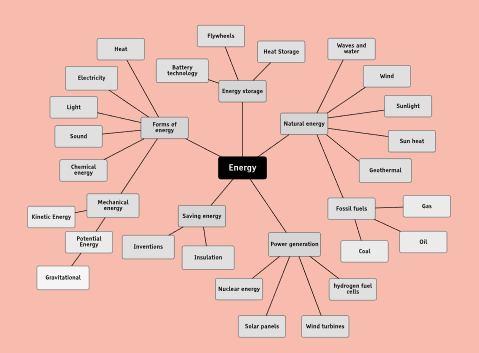The Number 1 Learning Skill
- the Usman

- May 30, 2019
- 3 min read
Updated: Jun 1, 2019
Alright guys, here it is. The magic formula. After you read this, your IQ will soar to 700 and you'll win a Nobel prize. Guaranteed. Aaand
No. That's not what this is, obviously. But here is a take on learning that will definitely help you build a better strategy for learning anything, whether it's for your classes, research, sports, etc. I will say that I mainly use it for math and science, but the general principle applies.
So what is it?
In short, you must see and make connections between ideas. Knowledge is a network of interrelated concepts, not discrete, isolated chunks. All effective learning strategies have to be based on this idea.
Behold the images above. They are two different ways of organizing ideas, but they also represent two different ways of thinking. Most people think like the one on the right. They group their concepts into lists, into chunks they have to learn. You'll see it all the time; people will make lists of concepts they have to study for an exam. Textbooks will divide topics into lists.
Let's carry the test example a bit further. You might say you need to review topics x, y, and z. So one by one, you'll review each idea. You'll do practice problems for each idea, or each chapter.
But that's not enough for you to truly learn the content on an elite level. I'm not saying that doesn't work. It does. It's just not going to give you as deep an understanding. You might forget everything a month or two after your exam. And you also won't do as well as people who do what I'm about to suggest.
Now look at the picture on the left. This is a mind map, it shows how ideas relate to each other. Real life is complex. You can't isolate ideas. You only get the whole picture when you realize where all the connections are and how the connections function.
Why is this so important? Back to the test analogy, friends. Let's say you go through practice problems and make a mistake. What most will do is figure out what the error was and fix it. They'll learn the right way to do the problem, try to remember it, and move on.
Here's what you should do instead. Same scenario, you made a mistake on a problem set. Okay, now you identified your error and fixed the problem. But you're not done. You now have to go back and review every concept remotely related to your mistake. Your lack of understanding in one area was probably caused by weaknesses in other areas. Not only that, but your weakness in one area will probably also cause weaknesses in related areas.

Almost nothing is actually hard. You probably just have weaknesses in some related concept. You see the piece but not the network.
Quick takeaways: View your learning as a network, not isolated chunks. Understand the connections
If you find a hole in your understanding or struggle somewhere, that's likely a sign you need to address related things too
Actively practice making connections. Whenever you receive new info, always contextualize by connecting it to what you already know
I'm gonna say it again. Practice making connections. Hunt for the connections. Focus on them
You can improve a skill by learning related skills
If you understand and implement these, I guarantee your learning will be much stronger and more efficient. Go forth, O Algorithmic Thinkers!








Comments